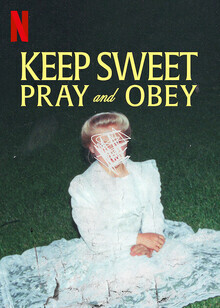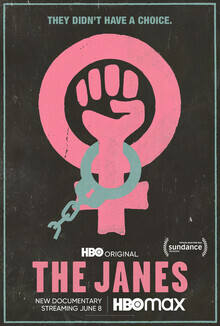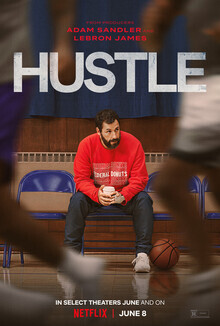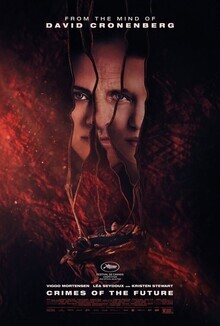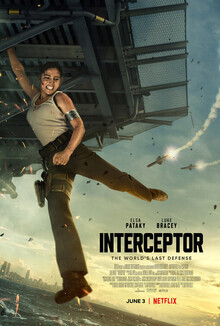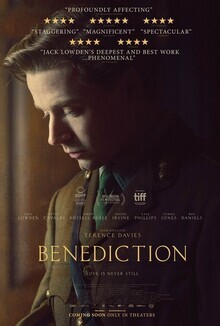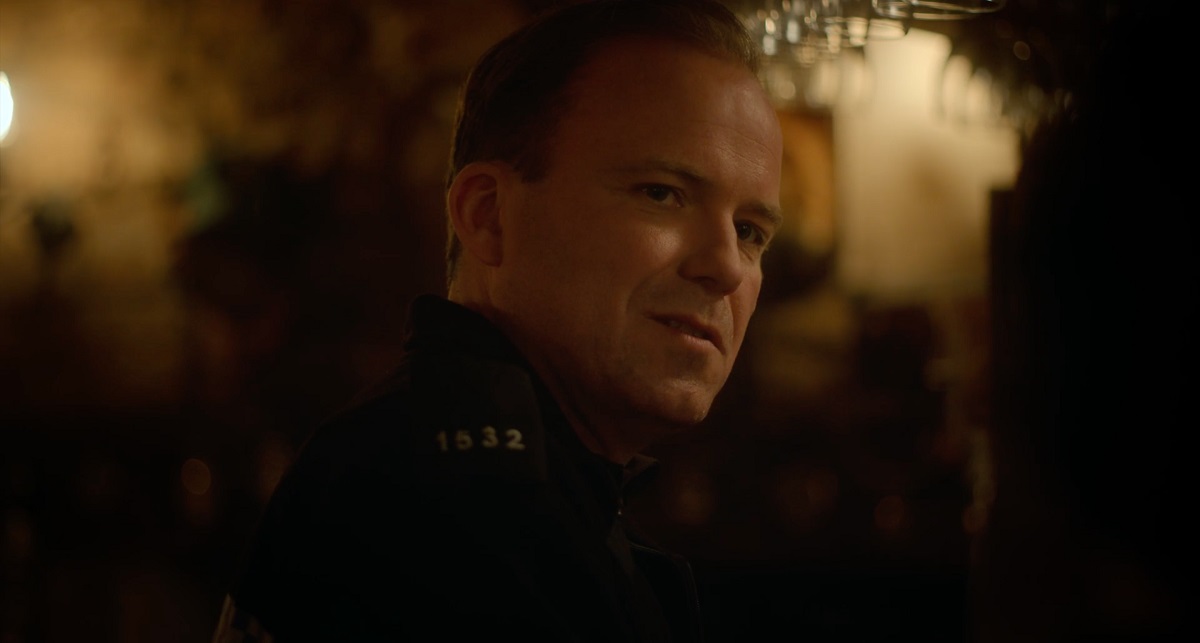
“Men,” Alex Garland’s latest film as a writer and director, is full of audacious stylistic gambits. But one of the riskiest—and the most rewarding—comes courtesy of Rory Kinnear. This isn’t the first time the English actor has played multiple roles in a single production: It’s a trick he also pulled off on the Showtime horror series “Penny Dreadful” and the British dark-comedy anthology “Inside No. 9” But “Men,” in which Kinnear plays five different variations on English masculine stereotypes, provided a unique challenge. It was important that audiences know that, as Kinnear puts it, “there's something a bit off” from the moment his first character appears on screen. But it was also important that these characters remained credibly threatening. Tipping too far into comedy would undermine the entire film, requiring a grounded approach to sometimes outrageous material.
We spoke to Kinnear about his approach to creating the five “Men,” as well as the thoughts that pop into a man’s head as he’s naked and covered in banana juice, lowing like a farm animal at three o’ clock in the morning.
Note that this interview contains spoilers about the ending of “Men.”
Did you consider this a comedic performance in any way?
No. I try to play it straight most of the time. I knew how each character was being received by how the crew would respond to me. It was really instructive in some ways—every time I would come on set as a new person, their reactions were completely different. I wasn't staying in character in between takes—I was just being Rory. But people would very much keep their distance if I was playing the vicar, and they'd be a bit blokey when I was playing the policeman.
It was party time when [landlord] Jeffrey was on set—everyone loved him! I guess he's the most harmless, or at least seemingly harmless, of them, and the most eccentric. There's something about his upper class nature that makes people feel comfortable as well.
But yeah, it was interesting and revealing to see people's responses to my outward appearance and the clothes that I was wearing. It changed completely from character to character.
The reason I asked is because of the wigs and teeth and the different costumes. All that could easily read comedic.
We spent two weeks before filming started going through all the looks with hair and makeup, working out how they would all fit and what palettes they were going to use. They were trying to make the [looks] as different as possible, but still keep credible. So the question was always asked, “have we gone too far?” And I would always rely on Alex's response.
The thing about Jeffrey particularly is that he's the first character we meet. And if this were a straight film in which there was an actor playing Jeffrey, I don't think I'd be cast as him. He's a bit older than me. He's a bit posher than me. He’s more bumbling than me. So there is something unusual about the fact that I'm playing him. Maybe now audiences are going to see the film already knowing the conceit, but we wanted them to go, “I can't quite put my finger on it, but there's something a bit off here.” The teeth and wig help with that. So we were able to do a bit more with Jeffrey in terms of how unsettling he looked.
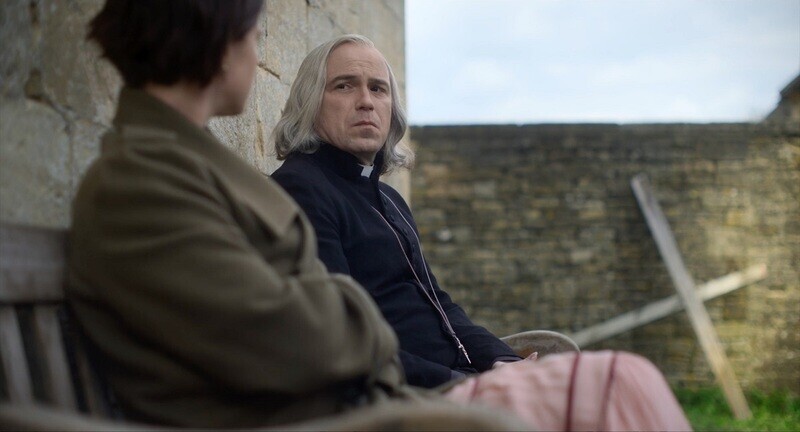
How deep were you able to get into the backstory for all these different characters? Because some of them only appear for a very brief time.
The first thing I said to Alex was that I wasn't interested if this was going to be a film where people came up to me going, “gosh, wasn’t he good at playing all those different parts”—or “wasn’t he bad at it.” I particularly wasn't interested in that. [laughs]
But I wanted to make sure that all these characters seemed to emerge from the countryside, that they were just as much part of the natural world, as the deer and the leaves and the foliage and the tunnels. I wanted them to feel firmly rooted within this community and this natural landscape. So that meant knowing each character just as well as the other, even if they were only going to be on camera for a little bit.
Before we started rehearsals, I came up with a potted biography of each one of the characters I knew I was going to play. I did that so I had a handle on their lived experiences, but also so that I could send them off to Alex and to Nicole and Lisa, the hair and makeup and costume designers. That way they had a starting point as well, rather than having them sort out their own ideas and realizing that our visions didn't marry up.
It wasn't like, “I think he looks like this,” or “He has this color hair.” It was, “This is where he grew up. This is his relationship with parents. This is where he went to school.” How he got into his profession—whatever. I let them use that as a jumping off point for their own creativity.
That was quite a long time before we even started rehearsals. And they would send through various mood boards and look boards, and we would continue that back and forth as we went along.
Interesting. So you were given free rein to develop all that?
Yeah, pretty much. Obviously we’re passing it all by Alex. The only character he was fastidious about the look for was the Green Man. That’s an image and a figure that he's been obsessed with for a long time. And bringing that to life, he took great care with the way that it manifested itself, to the extent that the last 20 minutes of the makeup would basically be him doing the finishing touches. Because this really existed perfectly in his mind, and he wanted to make sure that I lived up to it.
At the Q&A for the screening I attended, you talked about British cultural stereotypes. Could you talk a little bit about that in terms of these backstories you were writing?
I knew on the page that these characters were, I guess, representative of stuff. The authority that we naturally afford the upper classes here in England. What the church means to an increasingly secular society. How the police operate, and what our responses to them are. And the film asks just as much of the audience in terms of what they bring [to the experience] and how they perceive things as it does how Alex perceives things.
So with these figures that are rich with possibility and for interpretation, I knew that I had to make sure that they were as fully rounded as possible. So while I knew what they represented, no one thinks of themselves as a representation. So I had to make sure that they were as committed and as grounded as any other character.
Do you think that the film will play differently in the UK versus abroad?
Potentially. It’s a curiously English film, and I say “English” rather than “British” there deliberately. But the thematic resonance runs long and wide, particularly that sense of these being timeless stories and dynamics and interactions. That will probably land globally. And given the obliqueness of the piece at times, I'm sure people will interpret it according to their own experiences and their own societal pressures. And that will change from country to country.
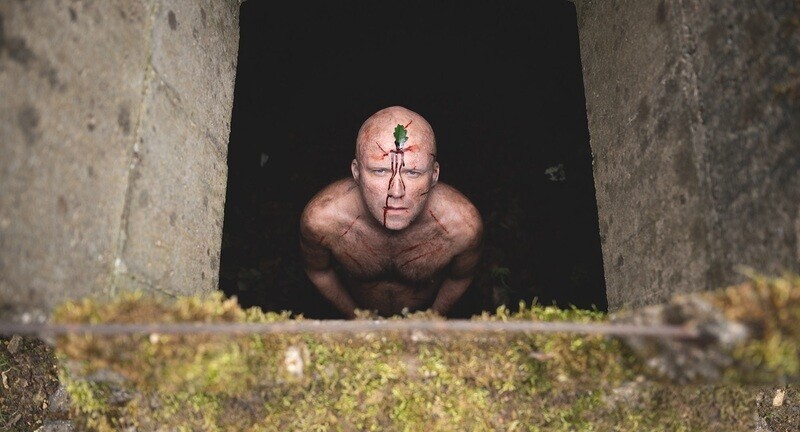
When you played the kid, were you using a green screen suit?
It was a bit more lo-fi, actually. It was remarkably lo-fi in lots of ways. I would rehearse the scene with Jessie, and then a nice young lad with dots on his face would come in and basically do what I was doing in those rehearsals. Obviously, it would change somewhat. So I would then go in without dots on my face, but with a white t-shirt on, and try to keep the shapes that his body made in the scene. Then I’d leave the magic to happen—which was easy enough outside the church, because he sat on the steps and wasn't moving that much.
It was a bit more complicated in the kitchen, when I was bearing down on her. For that, I had to make sure that my head was at a similar height to his. I was having to basically sit on a wheeled stool and push myself forward with my legs as I supposedly threateningly beared down on her—which had its challenges, given that Jessie and I got on very well and she found this all very funny. But we managed to keep it together long enough [to shoot the scene].
You mentioned the shapes of the body—that's very interesting to me, because there's this posture that you do that’s so similar to the creatures in “Attack on Titan,” which Alex has cited as a reference for the film.
I didn't actually know about that until Alex mentioned it at the screening the other night. The original script was basically the different characters mutating into each other, but not being born from each other. That was something new to chew on when that arrived.
What were you thinking when you first heard about it?
“How?” Yeah, I think “how?” was the one of the first. “Why?” might have been down about second or third. And very crucially, “where?” And when the response was “outside, about three o'clock in the morning in an unseasonably cold April,” I was delighted.
We had about six or seven days crawling around in the dirt through the night—and after the first character, I was forever covered in blood and crushed banana. It was a delightful, lovely week.
I think Paapa Essiedu said it was honey, banana juice, and something else ...
He was in it for a day. I can't take what he says seriously about it. He's got no idea. Try being in it for a week, mate! [laughs]
Did you have a moment where you thought, "What is my life? How did I get here?”
I mean, that's most of my life. [laughs] But certainly, on the first night of that sequence, where I was playing the Green Man ... we'd discussed it, but not really in terms of what I was going to do, exactly. So I just had to go with the flow and imagine what it would be like to be an iconic, timeless, mythical beast giving birth to an 11-year-old boy with a broken ankle and a sliced hand.
And there was a point in that first night where I was having to vocalize all these births—in the final film, they quite often use the soundtrack of Jessie screaming throughout that sequence. But at the time, I was giving it full pelt at about two or three o'clock in the morning. And that woke up the local livestock, who started bleating back at me to tell me to shut up.
Obviously, it was quite extreme. But that’s right in my wheelhouse. Alex, Jessie, and I all shared an approach, and a willingness to explore this stuff. It was one of the most rewarding experiences—and I don’t just mean the challenge of playing so many characters in that short amount of time. That was fun, but the film was going to sink or swim by the relationships that I had with Jessie and Alex. And luckily, we very quickly realized that we were going to enjoy this process.
"Men" is now playing in theaters.
